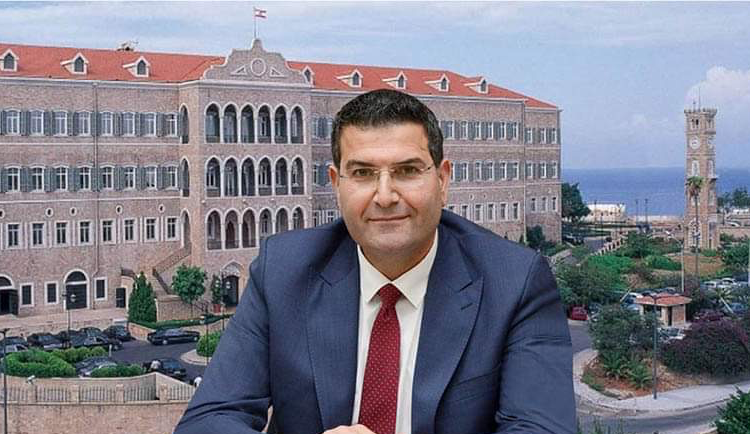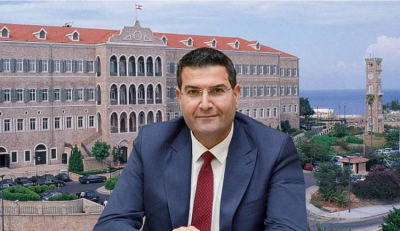The extensive use of internationally banned white phosphorus bombs by Israel in its attacks on southern villages and towns has drawn particular attention from the Lebanese Ministry of Agriculture due to the immediate and future damages these attacks pose to agricultural lands and the agricultural sector, including both plant and animal agricultural wealth. In this context, the Minister of Agriculture in the caretaker government, Dr. Abbas al-Haj Hassan, clarified that a meeting yesterday with the Secretary-General of the National Council for Scientific Research was dedicated to discussing a mechanism to address the Israeli attacks with phosphorus bombs, particularly regarding agricultural lands and forest wealth.
He pointed out that "Zionist attacks have affected all sectors, including the agricultural sector, which has suffered significantly from phosphorus bombs." He stated, "As a ministry, we are documenting daily the fires and damages caused by these attacks on the agricultural sector specifically." He noted the many discussions and speculations about the damages caused by phosphorus bombs, including whether these damages are toxic or non-toxic, carcinogenic or non-carcinogenic, among other questions raised about the subject.
Al-Haj Hassan explained that the Ministry of Agriculture has agreed with the National Council for Scientific Research to form a joint committee from both parties and anyone who wishes to join, which will take soil samples from various southern regions subjected to phosphorus bomb attacks to evaluate the extent of the damage caused by the internationally banned white phosphorus or other materials used by the Israeli enemy in Lebanese territories.
The minister emphasized "the importance of subjecting the topic of phosphorus bomb attacks to scientific facts to be established with evidence and persuasion, equivalent to the national consensus around the resistance issue. Our work should also have a scientific and practical cohesiveness to show that this enemy has harmed us with this evidence and argument."
Regarding Lebanon's actions in international forums, he said: "The Lebanese government has submitted more than one complaint through official channels in the Ministry of Foreign Affairs to the United Nations against the Zionist entity regarding its attacks with phosphorus bombs, despite our knowledge that these complaints do not change the situation one bit, as the international community's opinion today is well-known and the 'Israeli enemy' disregards the entire international community and international legitimacy. Thus, because we believe in international law, we filed these complaints to document in history that this enemy has been aggressing against us from land, air, and sea."
He pointed out that Lebanon adheres to international resolutions, but the Zionist enemy has not respected these resolutions even for a moment. Al-Haj Hassan confirmed that the Ministry of Agriculture has prepared comprehensive statistics on the attacks with internationally prohibited white phosphorus bombs and the resulting fires and losses in various regions targeted during attacks since the beginning of the aggression against southern Lebanon (from October 7 to January 19), including burned land areas (2,000 dunams), affected agricultural and woodland areas (6,000 dunams), as well as the number of olive trees (over 50,000), in addition to other agricultural trees, citrus trees, oak, mallow, laurel, and grasses.
Regarding animal losses, Minister al-Haj Hassan confirmed the death of 340,000 chickens, 950 head of cattle, 310 bee hives, total destruction of a 600 square meter feed store, and the destruction of six farms.




